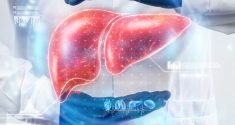The circadian clock plays an increasingly recognized role in the pathophysiology of acne. Although research on this topic is still in its infancy, current findings suggest that disturbances in the circadian rhythm can influence the development and severity of acne through effects on hormones, immune response, sebum production, and microbial colonization of the skin. Here is an overview of the possible mechanisms:
Regulation of Hormonal Processes

Impact on the Skin Barrier, Immune Function, and Sebum Production
The skin has its own circadian clock, which rhythmically controls processes such as cell renewal, DNA repair, immune response, and sebaceous gland activity. These processes are particularly active at night. Lack of sleep or shift work disrupts this process, often resulting in delayed healing of skin blemishes and increased inflammation. Sebocytes (sebaceous gland cells) are also subject to a daily rhythm. Dysregulation can lead to excessive sebum production, which promotes acne.
Gene Expression in the Skin
Certain clock genes (e.g., BMAL1, PER, CLOCK) influence inflammatory reactions, cell proliferation, and oxidative processes. Dysregulation of these genes could contribute to the overactivity of inflammatory signaling pathways—a key factor in inflammatory acne. Studies show that microorganisms in the skin itself exhibit circadian activity or are influenced by the host’s circadian rhythm. Conversely, the microbiome can influence circadian gene expression in skin cells—for example, through metabolites or inflammatory mediators.
Indirect Factors: Lifestyle and Diet

Tips for Supporting the Circadian Clock in Acne
A regular sleep pattern is important for regulating hormones and supporting skin regeneration. Avoid blue light in the evening to promote melatonin production and improve sleep quality. Soaking up sunlight in the morning can lower cortisol levels and stabilize the internal clock. Regular meals also support natural metabolic rhythms. Avoid sugar and caffeine late at night to prevent nocturnal inflammatory reactions.
Conclusion
The circadian clock regulates central processes that are crucial for the development and progression of acne—in particular, hormone production, sebaceous gland function, skin barrier, and inflammation regulation. A disturbed circadian rhythm (e.g., due to lack of sleep, jet lag, or shift work) can worsen acne or promote its development.







